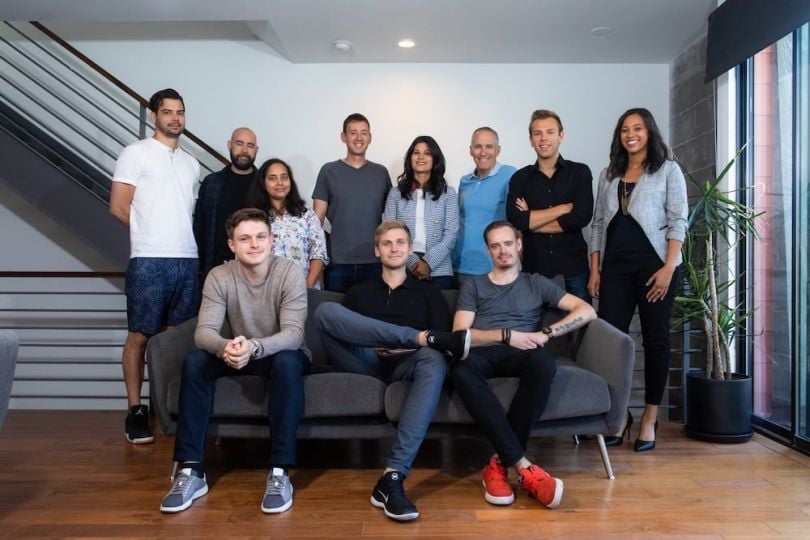
When Nate Cavanaugh was 18, he and two friends built an e-sports company that allowed players to compete in video games like Fortnite and report back publicly on who won. Over the next year and a half, the company grew and grew until a larger firm in New York became interested in acquiring it.
The trio sold the e-sports business.
Inspired by that success, Cavanaugh, then 19, dropped out of Indiana University, moved out to Santa Monica, and started listening to venture capitalists talk broadly about industry problems. The issue of patent trolling came up again and again.
Patent trolls are individuals who charge young companies exorbitantly high prices for using their patented inventions, sometimes even banking their business models on taking companies to court over patent use. Cavanaugh decided to become an expert on the practice, with the aim of solving the problem.
In 2016, he and two friends founded Brainbase, with the original intent of bringing transparency to the patent industry. The Los Angeles-based firm has now expanded its mission to provide a marketplace for intellectual property buyers and sellers, along with an intellectual property licensing management tool. And to do so, Brainbase raised $3 million in seed funding this week.
“It’s not a sexy problem to solve at all, in some ways, which actually makes it kind of defensible,” Cavanaugh said.
Struck Capital led the venture round, with participation from Watertower Ventures, Tectonic Capital, Sterling Road, Moomin Characters, investor Kent Wakeford, JJ List and Bonfire Ventures. The cash infusion brings total investment in Brainbase to $4 million.
Adam B. Struck, founder and managing partner at Struck Capital, said intellectual property licensing is a “fundamentally broken” space dominated by “a few” players all dependent on old technology.
“In an environment where new brands are constantly emerging, the pervasiveness of social media enables them to become recognized on the world stage overnight,” Struck said in a statement. “Brainbase combines a fresh perspective with incredible UI/UX to fundamentally lower the barriers to entry to the IP space as a whole, rapidly increasing the total addressable market.”
Traditionally, Cavanaugh said, companies would purchase intellectual property in person at trade shows and use dated software to complete the deal. Moreover, brokers would work to find manufacturers to make new products. These brokers would charge a 20 to 40 percent royalty fee, he said.
“People realize it’s a very antiquated space and a space always open for innovation,” Cavanaugh said. “It’s a large market.”
Brainbase is now on track to increase revenue by 700 percent year over year, Cavanaugh said, with plans to raise Series A funding in 2020. Cavanaugh declined to provide additional revenue information. Brainbase charges companies a 1 to 5 percent fee on every transaction completed through the Brainbase Marketplace, as well as an annual subscription fee for every company using its product licensing management software, called Brainbase Assist.
Companies use Brainbase Assist to review contracts, track sales and royalties fee schedules, generate invoices and more.
“Companies upload business contracts and we will automatically detect terms in the contract to make suggestions to the user, like ‘We see a 10 percent royalty rate, is this right?’” Cavanaugh said.
He added that Brainbase also uses artificial intelligence to generate personalized reports on how a product is performing in certain markets, weed out licensee buyers by the size of their revenue, recommend manufacturers who have worked with similar partners and more.
The company plans to use the funding to build native application integrations with companies’ accounting systems and communication tools. Brainbase already allows users to send messages to one another and comment on each other’s work, Cavanaugh said, ensuring quality control when a designing, say, a new “Hello Kitty” T-shirt.
Prospective vendors can pitch sellers on ideas for new products using their intellectual property through Brainbase Marketplace. Cavanaugh said he hopes to make the marketplace available to the public sometime in the first quarter of 2020.
For now, the firm is manually pairing the some 300 sellers like Sanrio — the seventh-largest license holder in the world known for its “Hello Kitty” enterprise — to buyers and manufacturers. Cavanaugh said sellers are also onboarding new buyers themselves.




